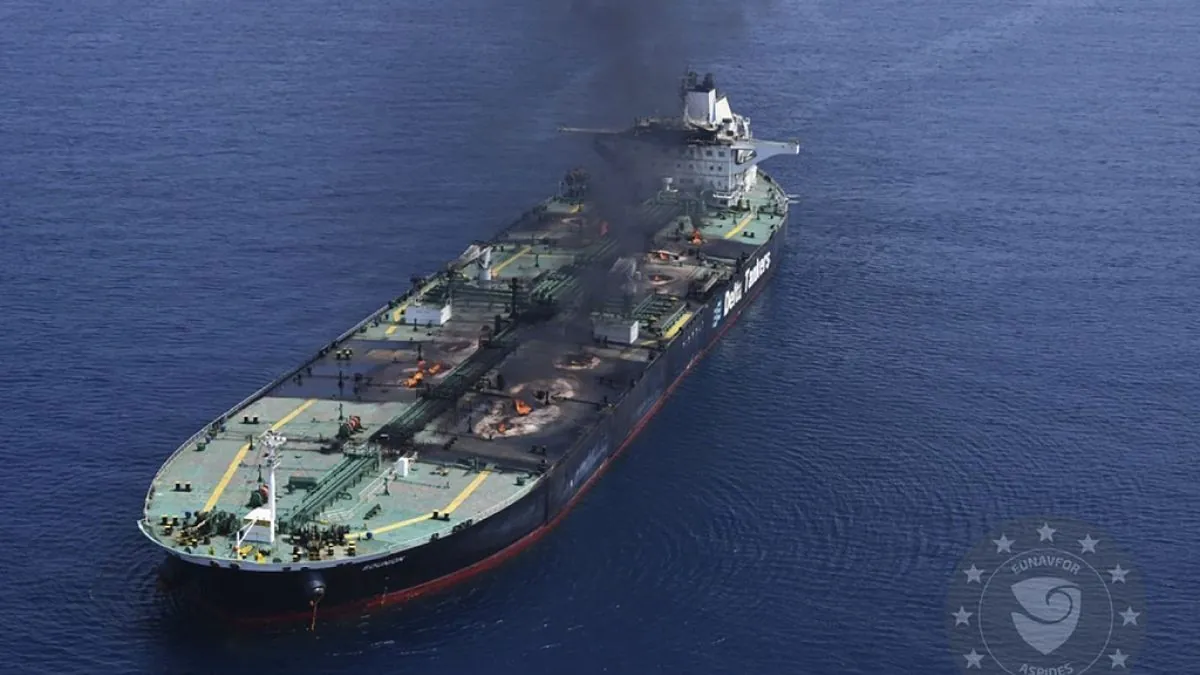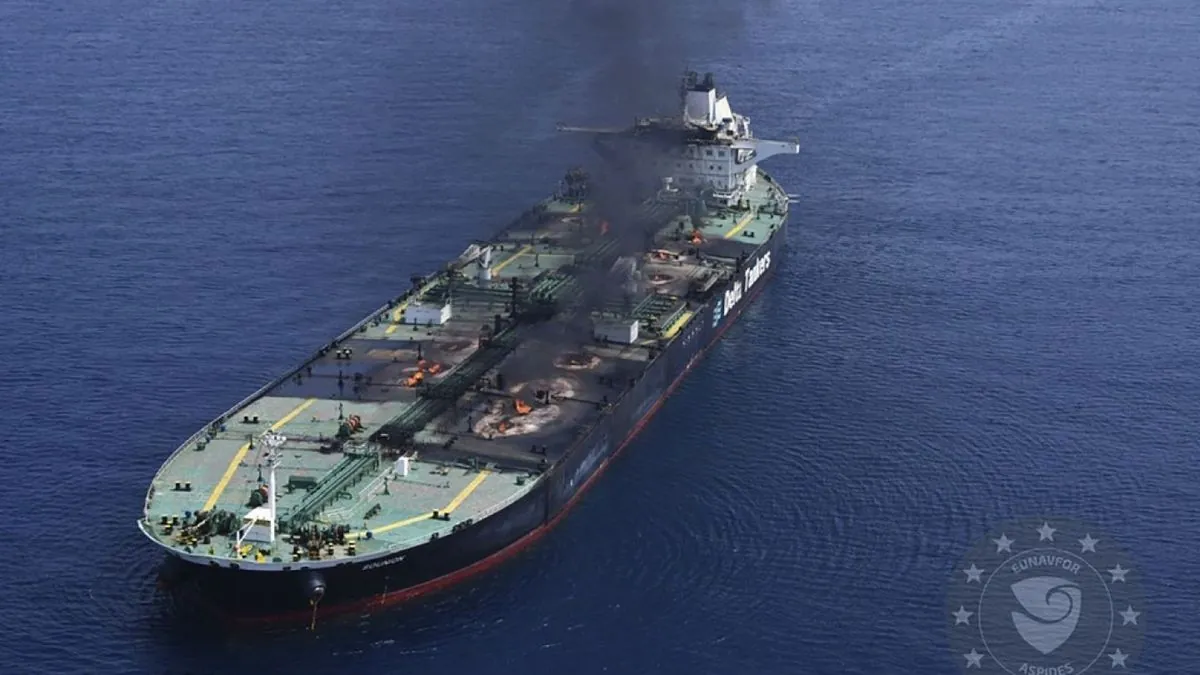EU Naval Mission Aids Salvage Effort for Attacked Oil Tanker in Red Sea
EU's Operation Aspides assists in salvaging Greek oil tanker Sounion, attacked by Houthi rebels in the Red Sea. The incident highlights ongoing maritime security challenges in the region.

The European Union's Operation Aspides has initiated a new effort to salvage the Greek-flagged oil tanker Sounion, which has been burning in the Red Sea following attacks by Houthi rebels from Yemen. This operation, occurring approximately 24 days after the initial attack on August 21, 2024, underscores the ongoing maritime security challenges in one of the world's most crucial shipping lanes.
Operation Aspides, launched in February 2024 to protect merchant ships in the Red Sea, has been actively involved in creating a secure environment for tugboats to conduct towing operations. The mission released images dated September 14, 2024, showing its vessels escorting ships approaching the Sounion.
The Sounion, carrying 1 million barrels of crude oil, was initially crewed by 25 Filipino and Russian nationals, along with four private security personnel. Following the attack, these individuals were evacuated to Djibouti, a strategically located country in the Horn of Africa, by a French destroyer.

In a concerning development, Houthi rebels subsequently planted and detonated explosives aboard the Sounion, raising fears of a potential environmental disaster in the Red Sea. This body of water, known for its high salinity and unique ecosystem hosting over 1,200 fish species, faces significant risks from oil spills.
The incident is part of a broader pattern of attacks by Houthi rebels on vessels in the Red Sea since October 2023. Over the past 11 months, more than 80 vessels have been targeted with missiles and drones, resulting in four sailor fatalities and two ships sunk. The rebels claim to target vessels linked to Israel, the United States, or the United Kingdom, ostensibly to pressure an end to Israel's military campaign in Gaza. However, many of the attacked ships have little or no connection to this conflict.
"We target ships linked to Israel, the U.S., or the U.K. to force an end to Israel's campaign against Hamas in Gaza."
This ongoing maritime conflict has significant implications for global trade, considering that the nearby Suez Canal handles approximately 12% of worldwide commerce. The situation is further complicated by Yemen's status as the poorest country in the Middle East, embroiled in a civil war since 2014 with Houthi rebels controlling the capital, Sanaa.
As international efforts continue to address this crisis, the incident highlights the complex interplay of regional conflicts, global trade, and environmental concerns in the Red Sea area. The EU's involvement through Operation Aspides represents a crucial step in maintaining maritime security in this vital waterway, which is already facing challenges due to climate change, warming at a rate three times the global average.


































